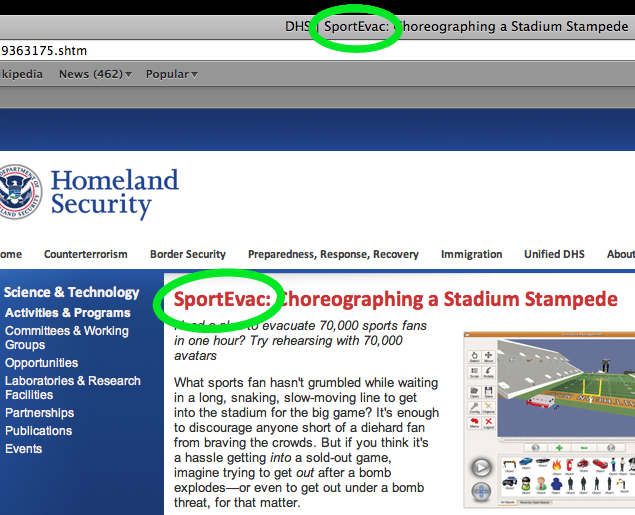This chart, from SEOmoz’s Rand Fishkin, may disabuse you—or someone you know—of that increasingly inflated notion. (I converted the GIF into a spreadsheet.)
The Power of Passion
“We’re gonna make your logo pop! We’re gonna make the IPREX globe spin! And we’re gonna make the buttons beautiful!”
“A button can be beautiful?” asked a skeptical Susan.
“Oh yeah!” beamed a confident Jesse.
It was at this moment that Jesse had Susan. He’d been muddling through the meeting, but this burst of bravura, energy and passion was sincere and infectious—a gust of fresh wind that I believe won him the contract to redesign SusanDavis.com.
Similarly, when I myself interviewed with Susan, things coasted along for the first 15 minutes. She asked about my experience; I provided conventional answers. Then she deployed her pet question: “If you were an animal, what would you be?”
“That’s easy,” I grinned. “I’d be a dog.” It was at this moment that I had Susan. With great pride and obvious pleasure, I regaled her with stories of my miniature schnauzer, Wyatt.
9 Ways to Engage Bloggers
Mention the phrase “blogger engagement” to today’s marketer, and you’re likely to get an eager response, followed by self-professed ignorance. “We’d love to do that—we just don’t know how.”
To some, this scenario spells new business. (In part, this explains why many agencies separate their “digital” practice from their traditional ones.) Yet an honest blogger whisperer will let you in on a secret: If you can pitch a reporter, producer, or booker, you can pitch a blogger. After all, bloggers are just people—susceptible to the same relationship-cultivating techniques that every PR pro performs every day.
Indeed, the best way to understand bloggers is to view them as members of the media. Think of blogger engagement as public relations, albeit a new kind. Neither straight reporter nor pure pundit, the blogger is a hybrid creature who observes his own rules.
How Email Signatures Can Brand and Promote Your Organization
One of the most overlooked opportunities for online marketing also happens to be one of the most ubiquitous: the email “signature.”
One of the first things new employees do is create a “signature block” for their emails. These half-dozen lines or so, consisting of your contact info, plop themselves at the bottom of every email we send. Yet few people put any thought into their e-signature, let alone alter it after it’s set up.
This modus operandi reflects a 1.0 mindset. Let’s upgrade it.
How to Win Friends and Influence Bloggers
Earlier this month, the Daily Beast broke the news that Facebook had hired a powerhouse PR agency to plant negative stories about Google in the press. The agency, Burson-Marstellar, deployed two of its big guns for the campaign: Former CNBC tech reporter Jim Goldman and former Hotline executive editor John Mercurio. In one e-mail, Mercurio offered to help write and place an op-ed if the recipient, blogger Chris Soghoian, would lend his name to it. The savvy Soghoian asked who was bankrolling the campaign, and when Mercurio declined to say, Soghoian made the e-mails public.
What makes this incident interesting is that on one hand, Mercurio did many things right. He used a descriptive subject line: “Op-Ed Opportunity: Google Quietly Launches Sweeping Violation of User Privacy.” His first sentence succinctly and directly summarized the ask. He provided a list of talking points, each supported by a link to an independent sources. And his offer was tantalizing: Who in Washington wouldn’t want a byline in the Washington Post?
How to Make Your News Clips Delicious
Last month, TechCrunch reported that the popular bookmarking site, Delicious, is trapped in “purgatory”: Owner Yahoo wants to sell the property, but in a way that protects Yahoo’s proprietary’s technology that Delicious shares with the rest of the purple family. Yet whatever its fate, Delicious continues to offer a service that’s not only superior to the competition but that also should be part of every digital PR toolkit. Here’s why.
When Content Isn’t King: The Importance and Ease of Search Engine Optimization
We’ve all heard the complaint before: Why doesn’t my Web page appear when I Google [fill in the blank]? To paraphrase George Berkeley: If a Web page is published but can’t be indexed, is it still published?
Let’s face it: If you don’t show up in a search engine’s first 10 results, you don’t exist. Indeed, that Google has made predictive search the default setting only hardens this race to the top. (According to the latest report from comScore, Google continues to process two out of every three queries in the U.S.)
Fortunately, this is a solvable problem—especially if your content contains a unique word or phrase.
5 Handy Tips to Make Your Writing Clearer and More Vivid
This past summer, I delivered a presentation on how to write better. My intent wasn’t to rehash the rules of grammar but to leave people with handy, memorable tips they could recognize and immediately apply to their own copy.
The 2.0 Way to Follow-up: It’s Called “Social Networking” for a Reason
After a conference or happy hour, many people find their pockets stuffed with business cards. If it was a productive event, the next morning you may be unable to pair each card with a face.
For the faces you remember, it’s customary to send off a nice-to-meet-you-hope-to-see-you-again e-mail. Often, the reply is just as trite.
This is the 1.0 way to follow-up: toilsome and monotonous. First, you need to remember what you discussed, then you need to craft a non-cliched missive. Then, when the need arises for a real follow-up, you run into e-mail’s static limitations.
The Single Best Way to Alienate a Recruiter
In the current edition of her e-newsletter, Claire Kittle, who runs the Talent Market staffing agency, recounts an anecdote that immediately rang true for me. With Claire’s permission, I’m reprinting the story, which I’ve edited slightly.
★ ★ ★
I get dozens of applications every day, and you would be amazed to see how many seemingly intelligent candidates do not follow instructions. If I had to put a number on it, I’d estimate that 50% of applicants fail to send me what my clients request.
I used to give all candidates the benefit of the doubt. I would follow-up with them and ask for the information they neglected to send the first time. But I learned that those same candidates often still fail to follow instructions on the second (and third!) attempts, and worse—they frequently get belligerent about being asked for more information!
Here’s a sample scenario:





